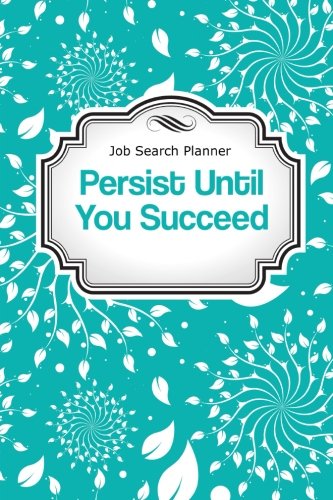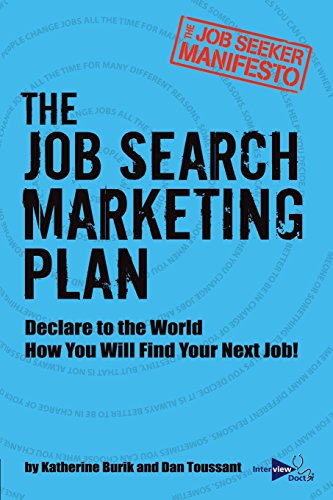- Key Takeaways
- Not Knowing Anything About the Company Where You Are Interviewing
- Not Knowing Why You Are the Right Person for the Job
- Your References Give You a Bad Reference
- Not Knowing Why You Are the Right Person for the Job
- Your References Give You a Bad Reference
- Giving Your Work Contact Information on
Your Resume - You Haven’t Googled Yourself Recently
- You Don’t Have a
Job Search Plan - Next Steps
- Final Words
We may earn a commission if you click on a product link and make a purchase at no additional cost to you. For more information, please see our disclosure policy.
Last updated: June 25, 2025
Key Takeaways
- Research Before the Interview: Failing to learn about the company and role can undermine your chances and signal a lack of interest or preparation.
- Customize Your Approach: Generic resumes and responses don’t stand out. Tailor your materials and answers to highlight relevant
skills and accomplishments. - Don’t Rely Solely on Online Applications: A strong network and proactive outreach increase your visibility and improve your odds of landing interviews.
- Clean Up Your Online Presence: Recruiters check social media and
search results. Know what appears under your name and manage your digital footprint accordingly. - Create a
Job Search Plan : A structured job search strategy helps you stay focused, track progress, and align your efforts with clear career goals.
We’ve all had those cringe-worthy
Understanding common
It’s no secret that job interviews are nerve-wracking, especially if you feel the position is a much-needed stepping stone into a fulfilling product management career. Take a look at CareerAlley's interview resources to improve your interview skills and nail your next interview.
Not Knowing Anything About the Company Where You Are Interviewing
Applying for jobs without researching the company is one of the most common—and avoidable—mistakes job seekers make. Even if a role looks perfect, showing up to an interview without a clear understanding of the company’s mission, services, or recent news can leave a negative impression. Employers expect candidates to demonstrate genuine interest in their business and culture.
Before any interview, review the company’s website, social media presence, and recent press releases. Look up the interviewer on LinkedIn to better understand their role and background. Gathering this context allows you to ask thoughtful questions, align your experience with their goals, and show that you’ve done your homework. Also, consider connecting with
If you’re serious about landing the job, preparation is non-negotiable. It’s your chance to prove that you’re a good fit for the role and the organization as a whole.
For more on strengthening your interview
Our AI Job Interview Coach is designed to help you train and excel in any job interview from the comfort of your home.
Not Knowing Why You Are the Right Person for the Job
One of the most important aspects of any interview is communicating why you’re the best fit for the position. Too many candidates walk in unprepared to directly connect their experience and achievements to the job description. If you can’t articulate your value, you risk being passed over—even if you’re fully qualified.
Before the interview, study the job posting closely and compare it to
Hiring managers want candidates who are confident, informed, and self-aware. When you clarify why you’re the right choice—and back it up with real evidence—you make their decision easier.
Get more interviews with Resume Companion's Free Resume Builder. Their software has everything you need, including industry-specific bullet points, templates formatted to fit every type of job seeker, and exportable PDFs and Word docs.
Your References Give You a Bad Reference
It may seem unlikely, but some candidates are unknowingly sabotaged by those they list as references. Employers rely on references to validate your character and professional performance, so everyone you list must be prepared and supportive. No matter how well the interview goes, a lukewarm or negative reference can derail your chances.
Before including someone on your reference list, ask if they’re comfortable recommending you. Discuss the role you’re applying for and remind them of specific contributions or
Being proactive with your references ensures consistency across your application and interview process. A firm reference should reinforce the key points you’ve made to the
Whether you want to find a new job on LinkedIn or advance your career, this guide can be the blueprint for a supercharged LinkedIn strategy.
Not Knowing Why You Are the Right Person for the Job
The
- Review the job posting: Understand what the employer seeks, including soft
skills and specific technical competencies. - Match your
strengths : Tailor your pitch to show how your background directly supports their needs. - Prepare examples: Use past experiences to illustrate success in areas critical to the role.
- Practice your message: Be concise, confident, and consistent when explaining why you’re the top choice.
Your References Give You a Bad Reference
It may sound surprising, but this happens more often than you’d think. Listing a reference without confirming their willingness—or ability—to speak positively about you can backfire. Even well-meaning contacts might unintentionally share lukewarm feedback that harms your candidacy. You must treat your references like an extension of your
- Have a conversation first: Make sure each reference is comfortable and enthusiastic about recommending you.
- Share the job details: Give your references context about the role and company so they can tailor their responses.
- Confirm availability: Ensure your reference is reachable during the
hiring timeline. - Follow up afterward: Thank them for their support and update them on your progress.
Giving Your Work Contact Information on Your Resume
Using your current employer’s business card or work
- Use a personal
email address: Create a professionalemail account for yourjob search activities. - Avoid your employer’s resources: Never list your work phone,
email , or business card when applying for new positions. - Present yourself independently: Ensure your contact info reflects your personal brand and not your current job.
- Maintain privacy and professionalism: Using personal contact details helps protect your
job search from being discovered by your current employer.
You Haven’t Googled Yourself Recently
Even if you’re confident that nothing questionable exists on your social media, it’s still essential to
- You can
search your name on multiple platforms, such as Google, Bing, and social sites, to see what appears publicly. - Audit your social profiles: Check for tagged photos, old posts, or inappropriate comments that could raise concerns.
- Clean up your digital footprint: Remove or update anything that doesn’t reflect your professional image.
- Create professional content: Publish on LinkedIn or create a portfolio site to dominate
search results with career-relevant material.
Whether you realize it or not—or even wish to admit it—you already have an online reputation to protect. It doesn’t matter if you’re fresh out of college and hoping your past Facebook indiscretions don’t torpedo your career prospects.
You Don’t Have a Job Search Plan
Starting a
A straightforward and practical tool to help job seekers stay organized, focused, and motivated throughout their job search journey.
Next Steps
- Audit
Your Resume and Online Profiles: Reviewyour resume and LinkedIn to ensure they align with your goals and reflect your current achievements. - Practice Interview Scenarios: Conduct mock interviews with a friend or
coach to improve your confidence and refine your responses. - Reach Out to
Your Network : Contact former colleagues, mentors, or industry peers to uncover hidden job opportunities and gather referrals. - Create a Weekly
Job Search Schedule: Block out weekly time for applications, research, and networking to stay focused and consistent. - Set Short-Term Milestones: Define specific, attainable goals, such as applying to five jobs a week or
scheduling three networking calls per month.
Your manifesto provides a unique approach to your job search reflected in your job search marketing plan
Final Words
Job hunting can be overwhelming, but recognizing and avoiding common mistakes gives you a distinct advantage. With the right strategy, preparation, and mindset, you can significantly improve your chances of success. Focus on showcasing your value, staying organized, and making meaningful connections throughout your
See how your resume stacks up! Our resume review will include three sections: (a) strengths of your resume, (b) areas to improve, and (c) the results of an ATS scan.
Mark Fiebert is a former finance executive who hired and managed dozens of professionals during his 30-plus-year career. He now shares expert job search, resume, and career advice on CareerAlley.com.









